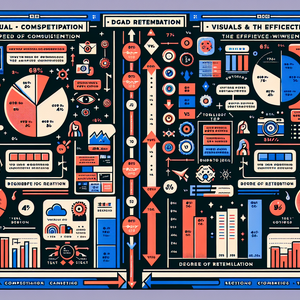The Gender Pay Gap in Gaming: Analyzing Salary Disparities Among Game Developers

The gender pay gap refers to the difference in earnings between men and women, typically expressed as a percentage of male earnings. In the gaming industry, the gap is stark. According to a report from the International Game Developers Association (IGDA), female developers earn approximately 74% of what their male peers make. This discrepancy is even more pronounced for women of color, who face additional barriers in a predominantly male-dominated field. For instance, a 2020 survey indicated that Black and Latina women in gaming experience even wider pay gaps compared to their white male colleagues, exacerbating existing inequalities.
Factors Contributing to the Pay Gap
Several interconnected factors contribute to the persistent gender pay gap in gaming: 1. **Underrepresentation in Leadership Roles**: Women hold a small percentage of senior positions within game development studios, which limits their influence over salary negotiations and workplace policies. According to the IGDA, only 21% of leadership positions in the industry are held by women. This lack of representation can create a cycle where women are not only underpaid but also overlooked for promotions and advancement opportunities. 2. **Role Segregation**: Research indicates that women are more likely to occupy lower-paying roles, such as quality assurance and design, while men dominate higher-paying positions in programming and technical leadership. This division reinforces stereotypes about gender roles in technology and limits women's opportunities for career growth. 3. **Cultural Bias**: The gaming industry has historically been male-dominated, leading to a culture that may inadvertently favor male employees. This bias can manifest in various ways, including fewer networking opportunities for women, which are essential for career advancement.
Personal Narratives: Voices from the Industry
To gain a deeper understanding of the gender pay gap in gaming, we reached out to female game developers to share their experiences: - **Emma**, a mid-level game designer, expressed her frustration: "I love what I do, but I quickly realized that my male colleagues were earning significantly more for similar roles. When I raised the issue with my manager, it was met with silence. It felt discouraging, and I often wondered if I was being overlooked because of my gender." - **Sarah**, a lead programmer at a major studio, shared a more proactive experience: "When I started, I was offered a salary that was lower than what I later discovered my male peers were making. I gathered data and presented it to HR, and thankfully, they were receptive. But it shouldn't take that level of effort to be compensated fairly." These narratives highlight the emotional toll and frustration many women face in the industry, reinforcing the necessity for systemic change.
Steps Toward Equality: Industry Initiatives
Recognizing the urgent need for change, various organizations and studios have begun to tackle the gender pay gap. Some initiatives include: 1. **Salary Transparency Policies**: Companies are adopting policies that promote transparency in salary ranges, making it easier for employees to understand their worth within the industry. 2. **Mentorship Programs**: By creating mentorship opportunities for women in gaming, organizations can help female developers navigate their careers and advocate for fair compensation. 3. **Diversity Training**: Training sessions aimed at addressing unconscious bias and promoting inclusivity are being implemented in many studios, fostering a more equitable workplace culture. 4. **Industry Campaigns**: The IGDA has launched campaigns to raise awareness about pay discrepancies and provide resources for women to negotiate their salaries effectively. 5. **Diversity Hiring Practices**: Some forward-thinking companies are committing to diversity hiring practices, setting measurable goals for gender representation within their teams, and ensuring that women are not only hired but also retained and promoted.
The gender pay gap in the gaming industry is a complex issue rooted in historical biases, underrepresentation, and systemic inequities. However, with growing awareness and a commitment to change, there is potential for progress. By amplifying the voices of female game developers and implementing equitable practices, the industry can move toward a future where everyone—regardless of gender—is compensated fairly for their contributions. As the gaming landscape continues to evolve, it is crucial for all stakeholders to advocate for equality and ensure that the industry thrives on the diverse talents it has to offer. Addressing the gender pay gap is not just a matter of fairness; it is essential for the overall health and innovation of the gaming industry.
Game Designer (Narrative Focus)
Naughty Dog, BioWare, Telltale Games
Job Responsibilities
Develop engaging storylines and character arcs that resonate with players, crafting immersive narratives within games.
Collaborate with artists and programmers to ensure narrative elements are seamlessly integrated into gameplay.
Required Skills
Strong writing abilities
Knowledge of game mechanics
Experience with narrative design tools like Twine or Inklewriter
Gameplay Engineer
Electronic Arts, Ubisoft, Riot Games
Job Responsibilities
Design and implement gameplay mechanics, ensuring they are fun, engaging, and aligned with the game’s vision.
Work closely with designers to develop prototypes and iterate on gameplay features based on player feedback and testing.
Required Skills
Proficiency in programming languages such as C++ or C#
Experience with game engines like Unreal Engine or Unity
User Experience (UX) Researcher in Gaming
Activision Blizzard, Epic Games, Square Enix
Job Responsibilities
Conduct user testing sessions to gather data on player interactions and usability, translating findings into actionable design improvements.
Collaborate with cross-functional teams to enhance player experience, focusing on accessibility and user satisfaction.
Required Skills
Experience with UX research methods
Proficiency in data analysis tools
Understanding of game design principles
Quality Assurance (QA) Tester
Bethesda Softworks, Capcom, Bandai Namco
Job Responsibilities
Test games in various stages of development to identify bugs and ensure product quality before release.
Collaborate with developers to replicate issues and verify fixes, providing detailed reports on game functionality.
Required Skills
Attention to detail
Strong communication skills
Familiarity with game testing methodologies
Diversity and Inclusion Manager in Gaming
Microsoft, Blizzard Entertainment, Riot Games
Job Responsibilities
Develop and implement initiatives aimed at promoting diversity and inclusion within the gaming workforce and player community.
Conduct workshops and training sessions to raise awareness about unconscious bias and foster an inclusive company culture.
Required Skills
Experience in human resources
Background in diversity initiatives
Strong interpersonal skills


